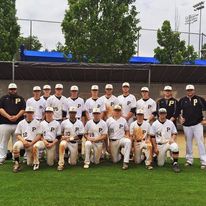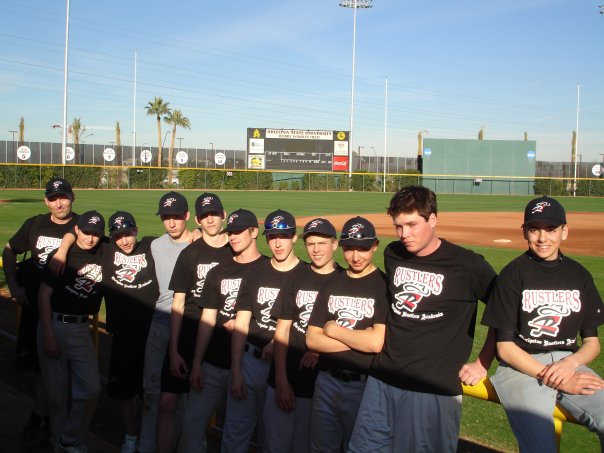4 Reasons Canadian Baseball Players Should Take A Gap Year
It is very tough for a Canadian kid to get a sizeable scholarship to play college baseball south of the border. For one thing – there’s almost no way you’re getting seen in person. So in order to earn an athletic scholarship that actually moves the needle financially you have got to stand out from a tools perspective. To garner real interest from multiple programs you had better throw upper 80s, be a burner (6.7 runner or better), or swing the absolute shit out of it. Your video is your first impression to a college coach and it needs to stand out from the crowd – you have to be head and shoulders better than other Americans at your position that this coach has the luxury of being able to watch play in person. Basically, why is this coach going to offer a kid he got a cold e-mail from a coach he doesn’t actually know instead of offering a kid in his own backyard? You had better have tools.
This leads me into the point of this post: the benefits of a Canadian kid taking a gap year – which is simply taking an extra year after graduating High School before beginning your collegiate career.
Before I get into this post – let me preface it all by saying this: what matters to the athlete must always be put to the forefront. As coaches that comes first. It’s also very important to be honest with a kid. I’ll never advise a kid to take a gap year unless I think it significantly, legitimately increases his chances of having options at scholarship opportunities down the road. This post is geared towards athletes in grade 12 who have their heart set on playing baseball south of the border and may have dreams/goals of playing for a big-time four year and/or professional baseball down the road. Lastly, by no means am I saying this is a superior route than going in the CCBC (hell my brother and one of my best friends coach one of the teams in that league.)

1. Americans start school later.
This is the biggest one. Canadians that head south after graduating are flat out younger then their American counterparts. I’ll give a couple of personal examples. I, myself am born in February (so I was always one of the oldest kids in my class). Waaaay back in the fall of 2008 (I didn’t take a gap year) when I went down to California every other freshman was born in 1989; I was born in 1990. It didn’t make a huge amount of difference because I was an early birthday but I was still nearly a year younger than some freshman and two years younger than some sophomores. If you’re a later birthday, like my brother was (November) and you go down you’re going to be 1.5 to 2.5 years younger than every other athlete you’re competing against for playing time. Taking a gap year will simply level the playing field from a birthdate point of view when you set foot on campus.
2. Take an extra year to develop physically.
This one is big, especially with the first point in mind. When my athletes take a gap year – it means they train and play six days per week. You are taking that extra year to train your ass off to earn a scholarship, but more importantly to prepare yourself to have success once you get down there. I saw firsthand the merits this extra year can have a long time ago when a good friend and teammate I played with growing up elected to follow this path. Keegan Hucul was a year younger than me and was always a standout pitcher.
In grade 12 Keegan had a few opportunities but nothing that really felt like a great fit to him. He decided to take an extra year, and he would be the first to tell you it really set him up to have the college career that he did. He got way stronger and developed a lot on the mound. He got a scholarship to Seward County and helped them go to the World Series. He followed that up by going 8-1 as a sophomore and earning a scholarship to D1 University of Texas at Arlington.
When I finished playing and got into coaching, Keegan’s experience really began to form my belief in the benefits of guys taking an extra year before heading south.

3. Develop mental and emotional maturity.
I’ve had a ton of my players take gap years. My brother (who had a very successful college career), Erik Sabrowski (now in the Padres organization), Matt Bondarchuk (an outfielder for D1 Nebraska Omaha), Finn Duffield (a 90+ lefty draft prospect now at UBC) to name just a few. All of them worked shitty, terrible jobs in the extra year – all the while training every day and helping their parents to pay for that training as well.
College baseball is tough. It can be a grind. Moving away from home where you don’t know anyone can be tough. However, I think all those guys will tell you that gap year was a whole lot more of a grind having to get up at 5 am, work a job that was no fun and physically demanding all day, and then train well in to the evening. In comparison, having to get up early for weights and having a long of day of class and baseball practice isn’t nearly as much of a grind once you have a little perspective about what ‘the real world’ is like.
4. Establish a foundation of confidence.
College baseball is tough. It’s a different world down there. Every other guy on your team will have been recruited as well. Being from Canada we just don’t see the same level of competition. Personally, my first month of my college fall I got absolutely hammered all over the ballpark. I had to learn quickly how to pitch. However, I was able to maintain my belief that I could be good because I had a lot of success in High School.
Taking an extra year will allow a player to either be “the guy” for their local club team and dominate, or move up to maybe the WCBL and have some success before they head south. From an athletic development model – it’s very important to play at a level where you have some real sustained success before advancing levels. If you’re in grade 12 and you didn’t dominate the competition, it would probably be a good idea to take an extra year, train, and tear it up on the field your final summer. The game of baseball is going to humble everyone at some point, and when it does you will need to have a bedrock of success to fall back on in order to maintain your belief in yourself. If you’ve never had some serious success in the game it’s going to be a whole lot harder to stay mentally tough and keep your confidence level high even amidst failure.

A last note: I’m a huge advocate of the gap year (can you tell yet) in the best of times. However, COVID and the NJCAA and NCAA subsequently granting extra years of eligibility has created a logjam of players in the college system. There’s a real scarcity of scholarships – especially at the juco level and so if there ever is a year as a Canadian to take an extra year – this is it.
